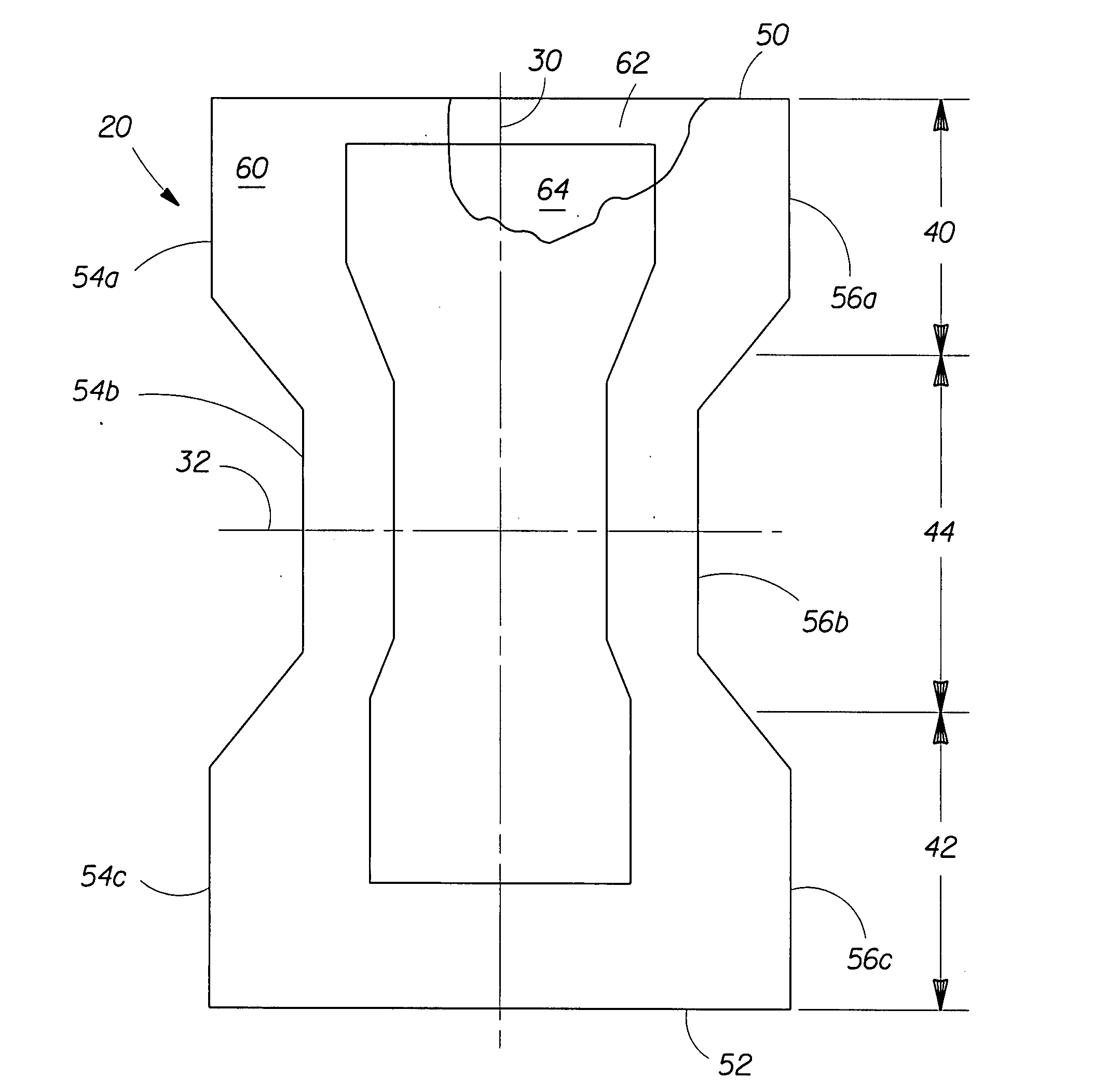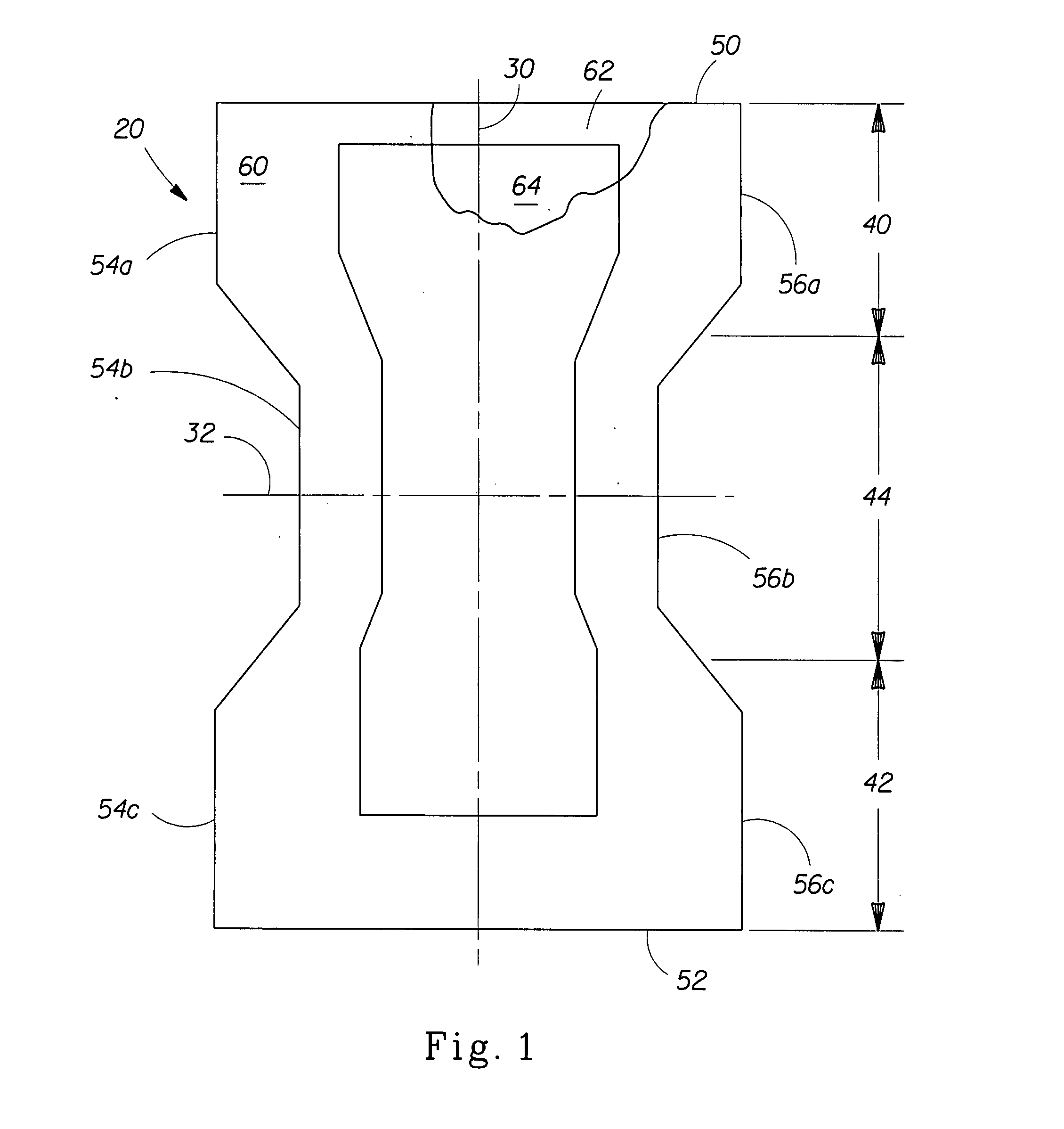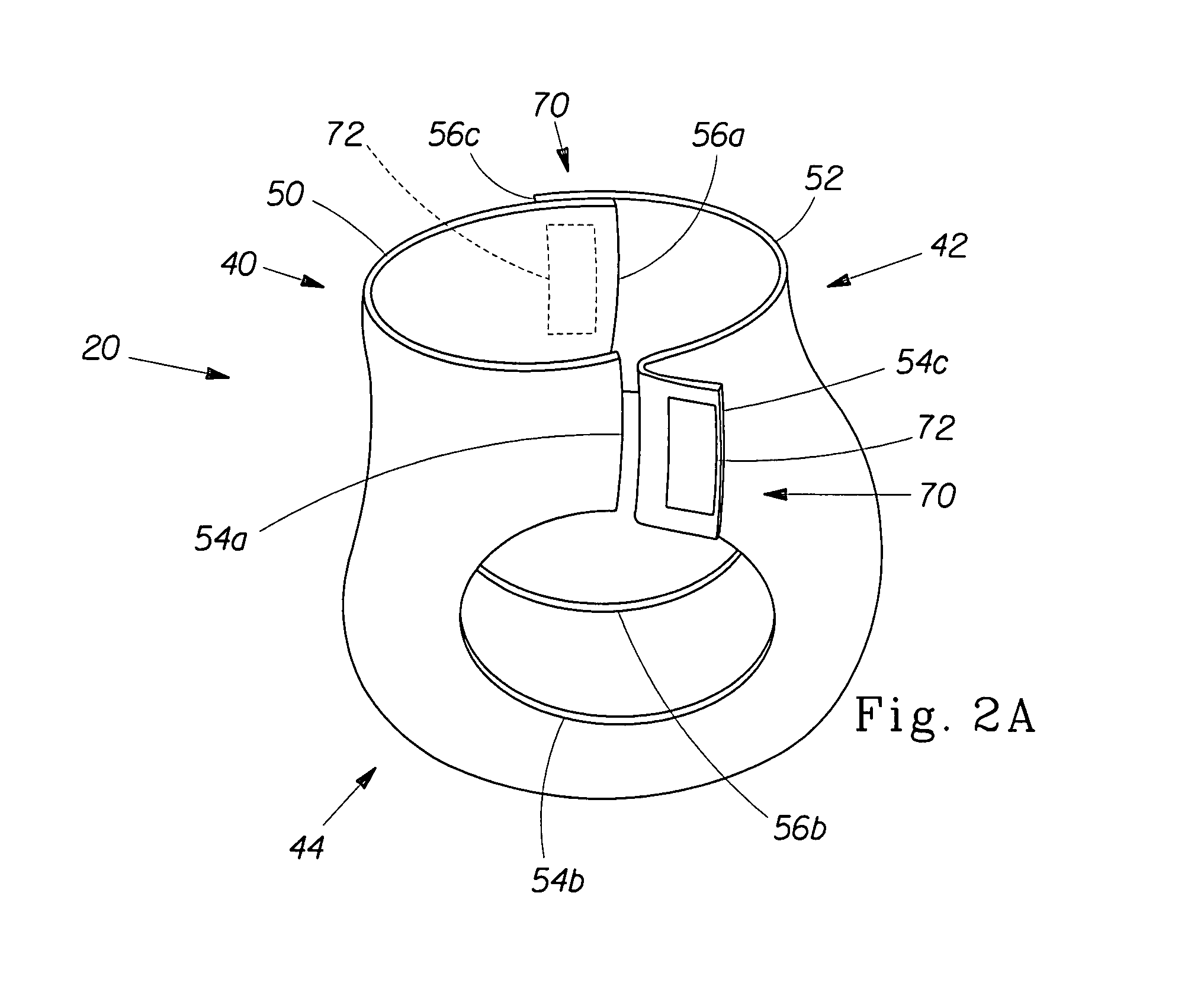Absorbent articles with feedback signal upon urination
a technology of absorbent articles and sensory elements, applied in the field of absorbent articles, can solve the problems of poor urine containment, enhancing discomfort, and child may feel little or no discomfor
- Summary
- Abstract
- Description
- Claims
- Application Information
AI Technical Summary
Benefits of technology
Problems solved by technology
Method used
Image
Examples
first embodiment
[0084]Turning then to the exemplary sensory element member 80, shown in FIGS. 3a, 3b, and 4a, the sensory element member 80 illustrated is a structure that is formed separately from, but discretely attached to, the topsheet 60. In particular, and as seen best in FIG. 4a, the sensory element member 80 has a first laterally extending joining region or end 82 attached to the first waist region 40, and a second longitudinally opposing and laterally extending joining region or end 84 attached to the second waist region 42. In addition, the sensory element 80 may have a center joining region 86 that may be attached to the crotch region 44. It is believed that the attachment of the sensory element member 80 to the crotch region 44 may assist in stabilizing the member 80, in facilitating fitting of the article 20 to the wearer, in preventing interference with bowel movements and in ensuring good contact of the member 80 with the wearer's skin.
[0085]In one embodiment, the sensory element mem...
second embodiment
[0124]Turning next to FIGS. 5a and 5b, a sensory element member 180 is illustrated therein. Similar to the sensory element 80, the sensory element member 180 has first and second sides 192, 194 that are arranged parallel to the longitudinal axis 30 of the article 20. Moreover, elastic members 196, 198 may be attached to the sensory element member 180 at the sides 192, 194 so as to elasticize the sensory element member 180, which may assist in bringing the sensory element member 180 into close contact with the skin of the wearer, increasing the efficacy and reliability of the signal transfer to the skin. Further, the sensory element may include an active component, such as (i) a coating, which may be a hydrophilic coating disposed on a body-facing surface or a hydrophobic coating disposed on an opposite surface, (ii) a temperature sensation element, which may be disposed on either surface and in substitution for, in conjunction with, or combined with the coating, and / or (iii) a layer...
third embodiment
[0127]Turning then to FIGS. 6a and 6b, the sensory element member 280 is illustrated, with the barrier leg cuffs folded back slightly in FIG. 6a to expose the sensory element member 280. The sensory element member 280 has a first laterally extending end 282 and a second longitudinally opposing and laterally extending end 284. As will be recognized, the distance between the ends 282, 284 is shorter than the distance between the ends 50, 52, or even the distance between end 50 and the crotch region 44. According to the embodiment, the position of the ends 282, 284 relative to the ends 50, 52 and the spacing between the ends 282, 284 is such that the likelihood that the sensory element member 280 will be wetted with urine is enhanced.
[0128]The sensory element member 280 includes a layer 290. The layer 290 extends between the ends 282, 284. Additionally, a first longitudinal edge 292 of the layer 290 is attached to a first barrier leg cuff 294 attached to the topsheet 60, while a latera...
PUM
 Login to View More
Login to View More Abstract
Description
Claims
Application Information
 Login to View More
Login to View More - R&D
- Intellectual Property
- Life Sciences
- Materials
- Tech Scout
- Unparalleled Data Quality
- Higher Quality Content
- 60% Fewer Hallucinations
Browse by: Latest US Patents, China's latest patents, Technical Efficacy Thesaurus, Application Domain, Technology Topic, Popular Technical Reports.
© 2025 PatSnap. All rights reserved.Legal|Privacy policy|Modern Slavery Act Transparency Statement|Sitemap|About US| Contact US: help@patsnap.com



